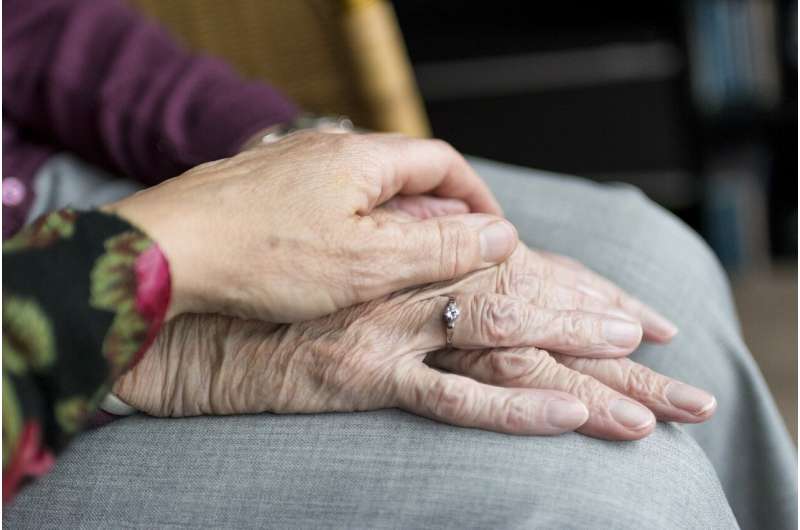Treating vision and hearing problems early can contribute to longer years in good health

Older adults aged 60 years and above with vision and hearing impairments may enjoy fewer years of life and healthspan compared to those with no impairments. Detecting and managing these conditions early could prolong the duration of life lived in good health by older adults, according to a study recently published in the Journal of the American Geriatrics Society by researchers at Duke-NUS Medical School (Duke-NUS) in Singapore.
Out of the five physical senses, impairment in vision and hearing, especially simultaneously, may have the greatest impact on the health of older adults. These impairments are associated with poor health outcomes, such as limitations in physical function and activities of daily living (ADLs), social isolation, cognitive decline, depression, poor self-rated health (SRH), communication difficulties, and even mortality. Studying the effect of vision and hearing impairment on life expectancy and health expectancy—the duration of remaining life expected to be spent with (or without) health problems—in older adults is relevant because these impairments affect both the quality and the quantity of life. This would allow care providers, policy makers and older adults and their families to thoroughly understand the impact of these common, yet often treatable, impairments.
"We investigated how vision and hearing impairments impact life expectancy and health expectancy among older adults. We were specifically interested in understanding how these impairments affect health expectancy when health is defined by a) physical function and b) the ability to perform activities of daily living (ADLs) - two important health indicators among older adults," said Dr. Rahul Malhotra, Head of Research, Centre for Ageing Research and Education, Duke-NUS, and senior author of the study. Dr. Malhotra is also an Assistant Professor with the Duke-NUS Health Services and Systems Research Programme (HSSR).
The researchers asked participants to rate their own vision and hearing abilities. To assess physical function, they asked participants to report whether they had trouble with tasks involving their arms and legs, such as walking 200-300 metres, climbing ten steps without resting, or raising their hands above their heads. They also asked participants to report whether they had trouble completing basic ADLs, including bathing, dressing or eating, or instrumental ADLs, such as doing housework, managing their medications or taking public transport.
They found that, at ages 60, 70 and 80, people with either or both vision and hearing impairments could expect more years of remaining life with limited physical function as well as with limitations in ADLs, compared to those without impairments.
People with both hearing and vision impairments had the greatest reduction in health expectancy, as well as an overall lower life expectancy. For example, at age 60, those with both impairments could expect not only a life expectancy that was about four years shorter than unencumbered participants, but also about three more years of life with limitation in physical function. Older adults with both impairments could expect to spend 62 percent of their remaining life with limitation to physical function, while the estimated figure for those with neither impairment was 38 percent. In addition, older adults with both impairments could expect to spend nearly one-third (31 percent) of their remaining life with limitation in ADLs, while those with neither impairment could expect only 16 percent.
"What's unique about our study is that we allowed vision and hearing impairment status to vary over time in the analysis. This is reflective of real-life cases, where some people would progress in their impairment over time, while others would remain stable or improve upon treatment of the underlying cause. We also accounted for the respondents' existing chronic diseases," said Dr. Chan Wei-Ming Angelique, Executive Director, Centre for Ageing Research and Education, Duke-NUS, and co-author of the study. Dr. Chan is also an Associate Professor with the Duke-NUS' HSSR.
"Vision and hearing impairments are often perceived as an unfortunate but inconsequential part of ageing, and in many cases, remain undetected or untreated. This important study by our researchers shows that early detection and timely management of vision and hearing impairments by older adults, their families and health systems are key to increasing the quality of life for older adults," said Professor Patrick Casey, Senior Vice Dean for Research at Duke-NUS.
The team is planning to compare this study's findings, which was based on self-reported vision and hearing impairment, with objectively measured impairment status by other groups in Singapore and around the world.
More information: Tareque MI, Chan A, Saito Y, Ma S and Malhotra R (2019). The impact of self-reported vision and hearing impairment on health expectancy. Journal of the American Geriatrics Society. DOI: 10.1111/jgs.16086


















